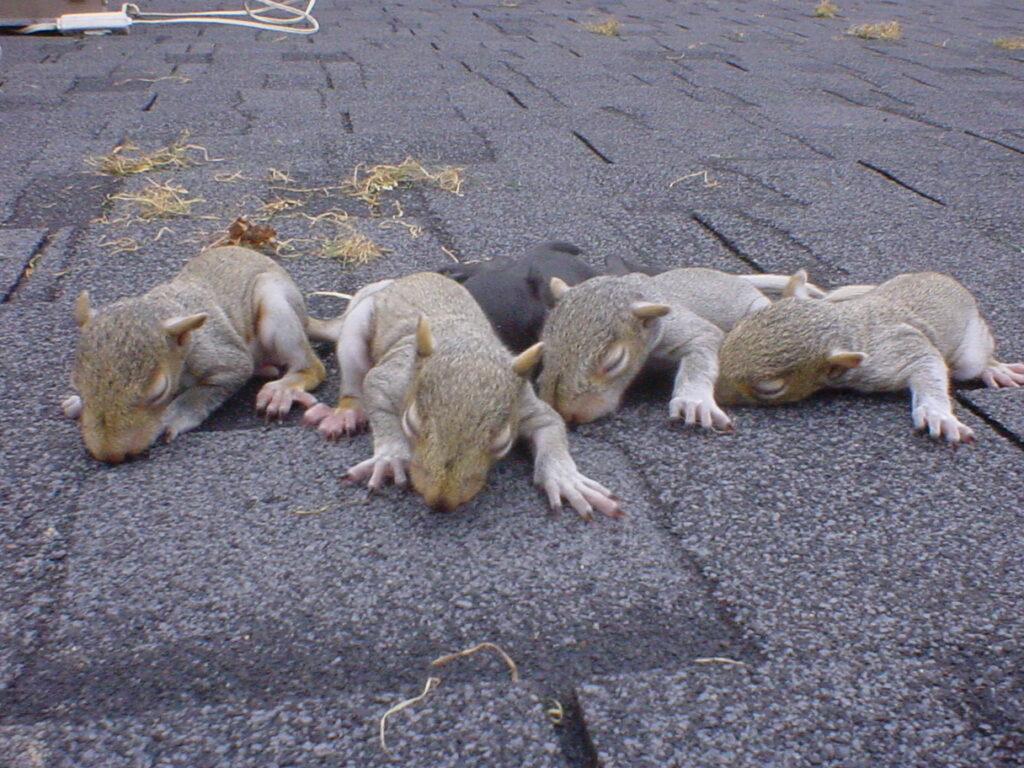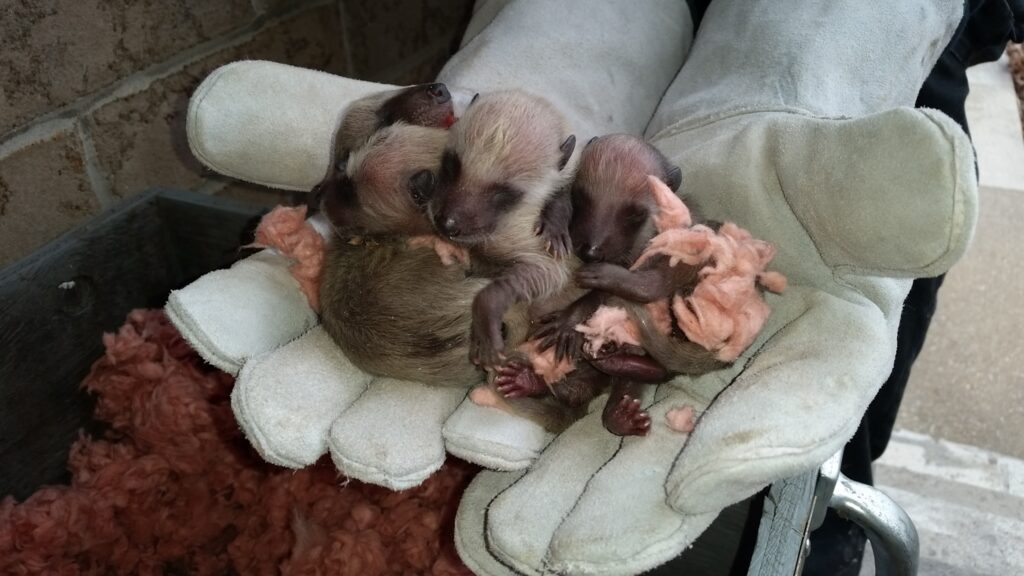Both squirrels and raccoons can be a nuisance if they get into your home, but is one of them worse than the other? Or is it just that they cause different problems that are equally bad? Part of the stress of having a nuisance animal in your home may be not knowing what it is, whereas if you know you have raccoons, it is clear that the next step is calling for raccoon control in Niagara.
Here are some problems that squirrels and raccoons can cause and how you can determine which have intruded into your home.
Squirrels
Squirrels are rodents and, like all other animals in their order, they have front teeth that are always growing. To prevent them from growing too long, squirrels constantly have to gnaw on things to file them down. This is one of the most significant ways that they cause damage to a home. Gnawing on electrical wires may result in outages or fires, while gnawing on pipes may cause water leaks.
Squirrels may also cause damage by urinating and defecating wherever they feel like it. They can also expose you to diseases through their excrement. Squirrels may bite if they feel threatened and, like all other mammals, they have the ability to carry the rabies virus. However, they are not known to spread it to humans.
Tree squirrels often get into a house by jumping from the branches of nearby trees. They may take advantage of roof vents or holes in soffits or siding. Like other rodents, squirrels have the ability to compress their bodies to fit into small openings and only need a hole the size of a quarter to get into a house. Once they get in, they usually stay in the attic because of an instinct to make nests high off the ground.
Squirrels are most active during the day. During the spring and summer especially, they spend most of the daylight hours foraging for food. You may be most likely to hear them scampering or scurrying around in the early morning as they leave to look for food, and then again in the evening when they return. You may also hear grinding sounds because of the squirrels’ gnawing. Baby squirrels have to be removed by hand, but adults may leave on their own with the installation of a one-way door that prevents them from returning.

Raccoons
Raccoons aren’t rodents. They are much bigger animals, which means that they need bigger entryways into your home. They are clever at problem-solving and have dextrous, five-fingered paws with which they can do a lot of damage when looking for food and shelter. Raccoons are likely to make dens in the attic, but they may also burrow under sheds or porches. They make large thumping sounds when moving around in the attic, but because they are nocturnal, you may only hear them at night. Raccoons choose a nearby site to use as a latrine for urination and defecation. This is typically outside but close to the den site, and it is dangerous because raccoon excrement can spread some nasty diseases.
Raccoons are frequent carriers of rabies, and while it is rare for them to spread it to humans, it is possible. Female raccoons are fiercely protective of their babies. They will fight to protect them and go to any lengths to be reunited with them if separated. Therefore, it is necessary to remove the mother raccoon first before the babies can be removed by hand. Because of the risk of injury or exposure to disease, this should only be performed by a professional.

Ultimately, raccoons are a slightly bigger nuisance, but squirrels can cause more damage than you may expect based on their small size. Skedaddle performs both squirrel and raccoon control in Niagara, so you don’t necessarily have to figure out what kind of animal you have before calling us.


